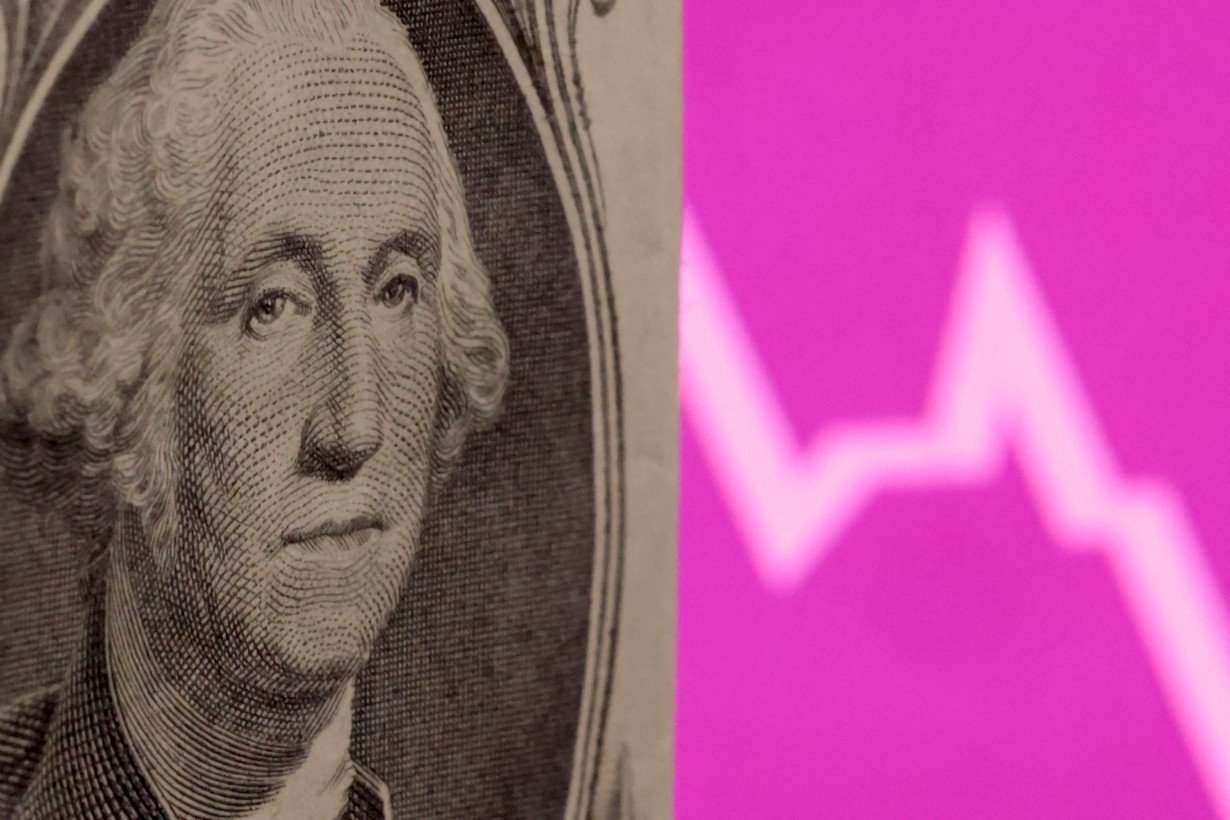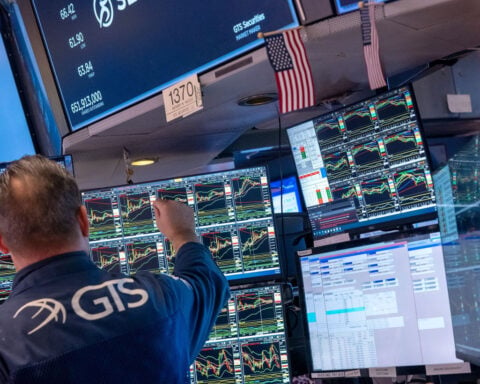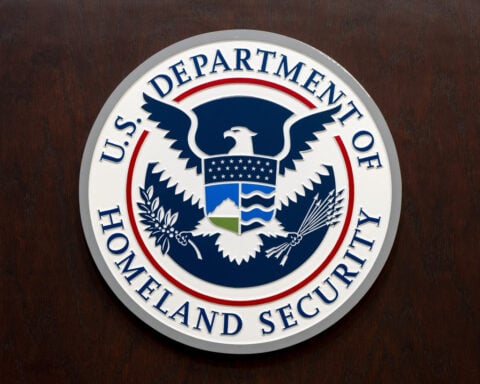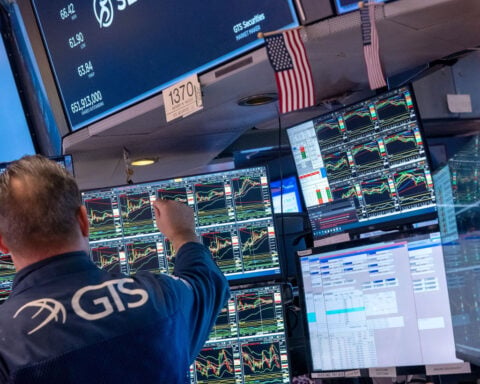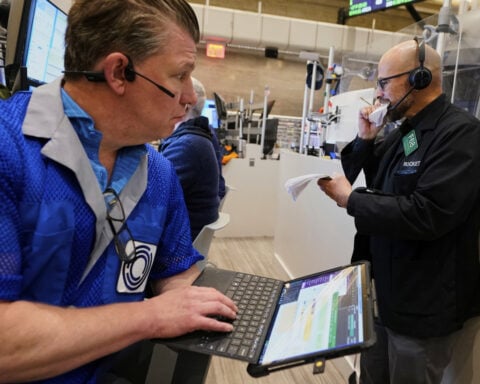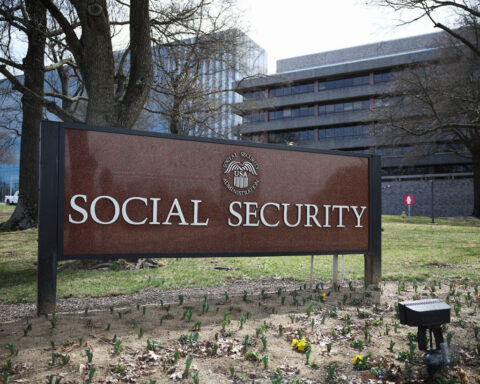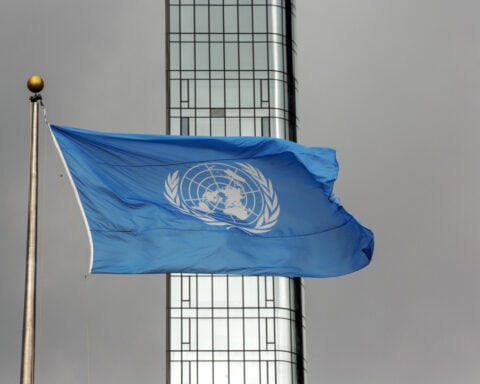By Shankar Ramakrishnan and Matt Tracy
(Reuters) -No new offerings were announced in the U.S. investment-grade and high-yield bond markets for the third consecutive day as credit spreads, or the cost of issuance, continued to increase on worries that U.S. President Donald Trump's tariff war could lead to a recession.
Since Trump imposed sweeping tariffs on U.S. imports on Wednesday, credit spreads, which are the premium companies paid on bonds over Treasuries, have widened sharply to two-year lows.
The average investment-grade spreads were at 120 basis points to end Monday trading, or 24 bps wider since last Wednesday, the widest they have been since November 2023.
The average high-yield spreads at 461 bps have widened 119 bps since Wednesday and are now also at the widest level since June 2023, according to ICE BAML data.
Guy LeBas, chief fixed income strategist at Janney Capital Management, said he expected to see some dip buying to emerge at some point if equity markets show signs of recovering from the recent selloff.
"These are just sloppy, sloppy markets that don't follow any measure of fundamentals or technical," he said.
The halt in issuance followed a period last month when, for the first time since the pandemic, companies struggled to issue bonds at the price they wanted - a situation that continued on Monday, two bond syndicate bankers said.
There were a few companies that looked early to issue bonds, but they decided not to go ahead as continued market volatility meant they were unsure demand would be enough to support issuance without being asked to pay a massive premium, said one syndicate banker who preferred to be unnamed.
"The most pressing question at this point is obviously what would begin to turn the narrative and give risk assets some respite from the aggressive selling of the past few sessions," said Krieter.
A softening in tone on tariffs from the Trump administration or more urgency to negotiate with U.S. trading partners would help, "though the weekend’s developments don’t provide much hope for either outcome in the near term," he said.
If high-yield bond spreads continue to widen, the global default rate could surpass 8% in a year's time from less than 5% today, said Sharon Ou, vice president and senior credit officer at Moody's Ratings.
Mike Sanders, head of fixed income at Madison Investments, said corporate credit spreads had a widening bias, but he expects signs of stability to first emerge in high-grade bonds.
The last investment-grade bond to price last Wednesday was issued by the financing arm of Holcim, which raised $3.4 billion in a four-tranche offering, and spreads on those bonds were bid 10-15 bps wider on Monday, said Sanders. The spreads on some other highly rated 10-year bonds from Home Depot and Coca-Cola were quoted 15-20 bps wider, he added.
(Reporting by Shankar Ramakrishnan and Matt Tracy; Editing by Nick Zieminski, Chizu Nomiyama and Rod Nickel)

 Trump has begun another trade war. Here's a timeline of how we got here
Trump has begun another trade war. Here's a timeline of how we got here
 Canada's leader laments lost friendship with US in town that sheltered stranded Americans after 9/11
Canada's leader laments lost friendship with US in town that sheltered stranded Americans after 9/11
 Chinese EV giant BYD's fourth-quarter profit leaps 73%
Chinese EV giant BYD's fourth-quarter profit leaps 73%
 You're an American in another land? Prepare to talk about the why and how of Trump 2.0
You're an American in another land? Prepare to talk about the why and how of Trump 2.0
 Chalk talk: Star power, top teams and No. 5 seeds headline the women's March Madness Sweet 16
Chalk talk: Star power, top teams and No. 5 seeds headline the women's March Madness Sweet 16
 Purdue returns to Sweet 16 with 76-62 win over McNeese in March Madness
Purdue returns to Sweet 16 with 76-62 win over McNeese in March Madness
